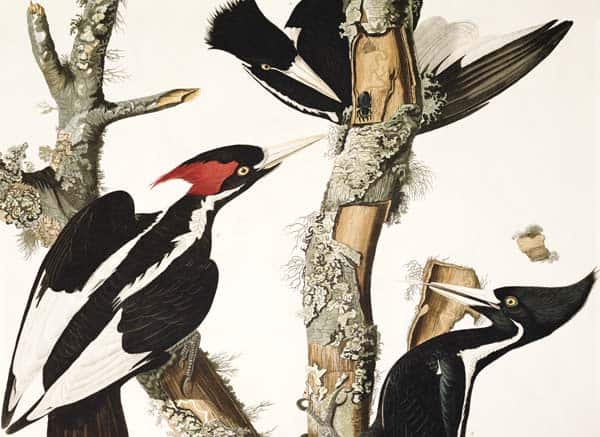The Poetry of Extinction : Holly Hughes' "Passings"

Come down to Village Books in Bellingham on May 22 at 4 pm for a free reading by Holly J Hughes from her new collection of poetry Passings.
Passenger pigeon. Carolina parakeet. Eskimo curlew. Heath hen. In a timely, moving collection of elegies, Holly Hughes gives voice to these and other bird species that no longer fill our skies. If their names sound as a litany of the hundreds of species we’ve lost, these fifteen poems ring as a reminder that their stories are still with us. In clear, well-crafted poems, Hughes serves as witness to these birds’ stories, offering each a poignant account that acts as a cautionary tale for the many species whose habitats now face threats from climate change. In her preface, Hughes introduces us to the birds she first knew and loved, and her impassioned afterword reminds us that it’s not too late to learn from these birds’ extinction and take action to protect the species that remain. “Take note,” she writes. “These birds are singing to us. We must listen.”
Carolina Parakeet
Conuropsis carolinensis
Incas, the last Carolina parakeet, died in his cage at the
Cincinnati Zoo on Feb. 21,1918, only six months after the
death of Lady Jane, his companion of thirty-two years.
From Mexico to New York they flew, tail feathers streaming,
startling in the monochrome of winter’s eastern shore.
When their forests were cut, they swooped to the farmlands
in waves of color — yellow, green, orange — lit in fruit trees,
found the soft squish of peaches, cherries, figs. Descending
three hundred at a time, in crayon-box flocks, they were shot
by farmers defending their crops — who could fault them?
Shot for their tail feathers, all the rage on ladies’ hats,
shot because they would not desert each other, each staying
by its wounded mate until hunters picked them off,
one by each last, bright, exotic, faithful one.
“Holly Hughes’s elegiac meditations on birds that have vanished from earth give us a glimpse of the avian beauty that once filled our skies, and they echo with a sobering reminder of what we still stand to lose. From flocks of passenger pigeons to Australia’s paradise parrot, more than 150 species have fallen silent over the past few centuries. Hughes gives eloquent voice to the voiceless in these poems, and strikes a heartfelt call to awareness.” — Tim McNulty, author of Ascendance
Ivory-billed Woodpecker
Campephilus principalis
I wish I’d been at the sighting that inspired its nickname,
the Lord God bird. I’d love to see this woodpecker,
perhaps extinct, perhaps not; no one knows for sure.
Standing twenty inches tall with white wing patches
and a flashy red crest, who wouldn’t say Lord God,
look at that? Once it made its home in the hardwood
forests of the south; birders say its ivory bill could pierce
bark eight inches deep. Imagine the racket. Even so,
they were vulnerable: a single pair needed six square miles
of wet forest with dead trees in which to search for grubs.
In 1948, when a Louisiana forest was cleared for a soy plantation,
the last population vanished. The Cuban subspecies survived
a few more decades, but by 1970, logging had reduced its population
to eight pairs. In the 1990s, explorers in the mountains near Moa
found fresh signs of feeding, caught a glimpse of a bird that may
have been the ivory bill, but that sighting was never confirmed.
Since then, more reports have surfaced, suggesting
the Lord God bird may not be gone. A few still hide,
spectral spirits, reminding us of the shimmering line
linking memory and desire, reminding us that perhaps
it’s not too late to save them, to save us all.
“No one knows for sure you’re gone,” Holly Hughes writes of the Eskimo curlew. Most of its fellows on this ex-life list, rarae aves no longer, are aves extincta. But they’ve not gone from the scene without grace. Even their names are poems — O’o, dodo, great auk, Spix’s macaw — and names, thanks to Passings, that will remain on the wing as long as there are lips to say them.”
— Robert Michael Pyle, author of Evolution of the Genus Iris: Poems
Available from Expedition Press at www.expedition.press. For information on Hughes’ other books, check out her website at www.hollyjhughes.com.
top image: “Ivory-Billed Woodpeckers” by John James Audubon.

